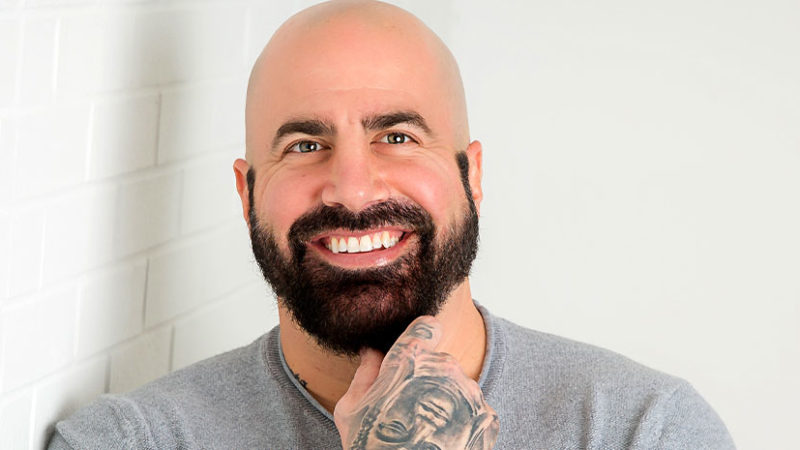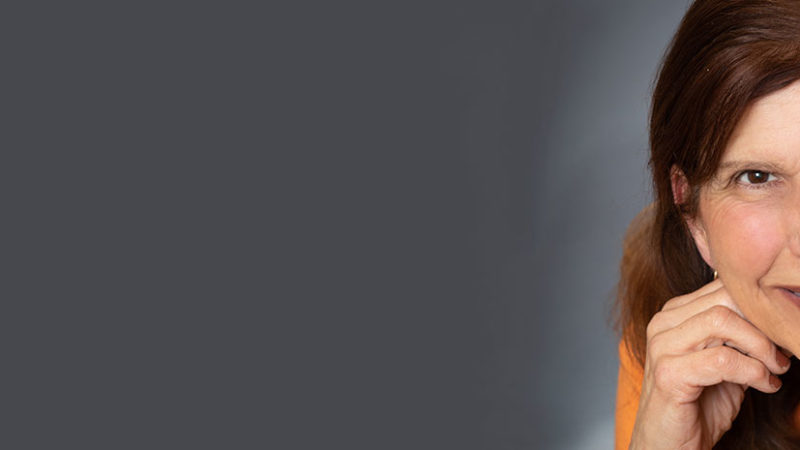-
E111: The Mind Isn’t the Problem—It’s That You’re Listening to It
Michael Singer — September 11, 2025
The deep spiritual teachings emphasize that the real problem is not the mind itself but our...
-
Acharya Shunya: The Five Phases of the Vedic Afterlife Journey | Part 2
Acharya Shunya — September 9, 2025
In the second half of Acharya Shunya's talk, she shares her personal journey from tradition to...
-
Honey Tasting Meditation: Build Your Relationship with Sweetness
There is a saying that goes “hurt people hurt people.” I believe this to be true. We have been...
Written by:
Amy Burtaine, Michelle Cassandra Johnson
-
Many Voices, One Journey
The Sounds True Blog
Insights, reflections, and practices from Sounds True teachers, authors, staff, and more. Have a look—to find some inspiration and wisdom for uplifting your day.
Standing Together, and Stepping Up
Written By:
Tami Simon -
The Michael Singer Podcast
Your Highest Intention: Self-Realization
Michael Singer discusses intention—"perhaps the deepest thing we can talk about"—and the path to self-realization.
This Week:
Acharya Shunya: The Five Phases of the Vedic Afterlife Journey | Part 2 -
Many Voices, One Journey
The Sounds True Blog
Insights, reflections, and practices from Sounds True teachers, authors, staff, and more. Have a look—to find some inspiration and wisdom for uplifting your day.
Take Your Inner Child on Playdates
Written By:
Megan Sherer
600 Podcasts and Counting...
Subscribe to Insights at the Edge to hear all of Tami's interviews (transcripts available, too!), featuring Eckhart Tolle, Caroline Myss, Tara Brach, Jack Kornfield, Adyashanti, and many more.
Most Recent
Bruce Tift: Already Free
Bruce Tift has been in private practice as a psychotherapist in Boulder, Colorado since 1979. He taught at Naropa University for 24 years and was a student of Chögyam Trungpa Rinpoche. With Sounds True, he has published the book Already Free: Buddhism Meets Psychotherapy on the Path of Liberation. In this episode of Insights at the Edge, Bruce and Tami Simon compare and contrast two different approaches to personal transformation: the “developmental” approach of psychotherapy and the “fruitional” approach of Buddhist practice. They discuss the blind spots inherent in each approach, as well as the ways they can be addressed. Tami and Bruce talk about the nature of neurosis and how neurotic tendencies almost always involve a sense of disembodiment. Finally, they speak on “unconditional practices,” and how unconditional kindness can transform one’s outlook on the procession of life. (70 minutes)
On The Mindfulness Revolution and Our Fear of Authenti...

Deepen your personal healing practice with guided meditations, audio presentations, and learning intensives by Jon Kabat-Zinn on Sounds True »
Have you ever wondered who coined the term ‘mindfulness’? That was Dr. Jon Kabat-Zinn. He describes it as “paying attention on purpose with a non-judgmental attitude.”
“I take an enormous amount of pleasure in actually not trying to get anywhere” —Jon Kabat-Zinn
Partly because of his work and research, this concept of ‘mindfulness’ has become mainstream. We see it at colleges, small businesses and large corporations, and—perhaps most notably—in medicine (Kabat-Zinn also founded the Stress Reduction Clinic at the University of Massachusetts Medical School).
In Tami’s interview with Kabat-Zinn on Insights at the Edge, the two begin asking: Why is mindfulness gaining popularity in the first place? In the process, they explore what’s simple, profound, and relatable about it.
AGE OF MINDFULNESS

“Once you realize that we are completely embedded in an interconnected world … the only real response is a sense of profound appreciation or affection for the fact that we are not separate”
Mindfulness has always been a part of humanity. It has been called different names and interpreted by different lenses, but the concept of some greater unity of which we are all a part—that doesn’t seem to be going anywhere.
So, even if it’s a trend, couldn’t there be more to it? In a way, mindfulness seems to take on the breath of intuition, not necessarily logic or reason. It is truly the air of possibility.
YOU ARE NOT YOUR THOUGHTS

You cannot get rid of your thoughts. But when you create distance between yourself and your thoughts, you can let them wash through you. You do not have to fight to maintain them or believe them. And, you do not have to fight to let them go.
“Suppose the sky is awareness. If a bird flew through, then the sky would know it. … [The sky] has its own sort of ground condition of just being the sky, just being awareness”
He describes this awareness not as a state of being, but as a shift in seeing. There was always space there. We just needed to rotate a lens.
Have you ever retreated your vision while meditating, so that you were gazing out from between your two closed eyes? Like that. That field of awareness stretches infinitely—as conscious beings, it weaves us together.
This feeling is both humbling and terrifying in its awesomeness. When the sky is so big, we don’t know what we are. But we can accept this uncertainty. Our minds, our egos, our bodies—can expand with it.
WE ARE ALL GENIUSES

Homo sapien sapien literally translates from Latin to “the species that knows and knows that it knows.”
In the episode, Jon and Tami talk beautifully about mindfulness’s fundamental humanness. There is an utter connection between our feet grounded on this Earth, and the spaces we don’t understand.
“There is something about mindfulness that is absolutely core to our humanity … the final common pathway of what makes us human”
Sometimes, meditation helps us feel the truth of this. Once we know this awareness is there, we can integrate it into the ways we think and make decisions.
FEAR OF AUTHENTICITY
 We reach for purpose; we wish to understand our place in the universe. (It isn’t weird for us to do this. If I were an alien, and I heard humans were doing this, I would be like, well, yeah.)
We reach for purpose; we wish to understand our place in the universe. (It isn’t weird for us to do this. If I were an alien, and I heard humans were doing this, I would be like, well, yeah.)
Yet, we are afraid to be ourselves. We don’t want ourselves to disappear. So we keep inside our deepest sorrows, anxieties, and emotions.
The parts of us we try and protect so carefully end up banging on the walls inside of us, stuck.
“It’s not like we can never suppress that shadow side … but if we can come to understand it in a deeper way, then I think there is a potential … [to] elevate what is most beautiful and good about all human beings”
What if we gave all of it—ourselves, and our connection to the world—the space to breathe?
(And the possibilities begin to shimmer.)
ABOUT JON KABAT-ZINN

Jon Kabat-Zinn, PhD, is professor of medicine emeritus at the University of Massachusetts Medical School, where he founded the Center for Mindfulness in Medicine, Health Care, and Society in 1995, and its world-renowned Mindfulness-Based Stress Reduction (MBSR) Clinic in 1979. His trailblazing research has helped bring mindfulness meditation into mainstream medicine. He is the author of 10 books, including the bestsellers Full Catastrophe Living; Wherever You Go, There You Are; and Mindfulness for Beginners.
Take a look at Jon Kabat-Zinn’s book and accompanying CD of guided practices, Mindfulness for Beginners, published by Sounds True!
★★★★★ Easy to read and informative as well as inspiring. —gus c
★★★★★ In my opinion, a must-read for all humans. —Yves N
ABOUT THE AUTHOR
When she isn’t writing, playing music or teaching, Dani Ferrara blogs at Sounds True and researches the alchemy of healing. Explore her art at daniferrarapoet.com.
Christian Conte: Healing Conflict: Listen, Validate, a...
Christian Conte, PhD, is a mental health specialist and leading authority on anger management. With Sounds True, Christian has published Walking Through Anger: A New Design for Confronting Conflict in an Emotionally Charged World. In this episode of Insights at the Edge, Tami Simon talks with Christian about his Yield Theory of emotional management, focusing on the process of “listen, validate, explore options.” Christian explains the events that led to his interest in anger management, as well as the origins of Yield Theory. He emphasizes the importance of meeting others where they are, giving them the opportunity to drain anger’s charge from their limbic system. Christian and Tami discuss why it’s necessary to cultivate humility and how Yield Theory might be applied to our currently divisive culture. Finally, they speak on “the cartoon world” that angry responses often create, as well as the importance of watching what we add to our minds.(63 minutes)
Customer Favorites
The Courage to be Vulnerable
Dr. Brené Brown is a research professor at the University of Houston’s graduate college of social work who has spent the past decade studying vulnerability, courage, authenticity, and shame. Brené is the author of the number-one New York Times bestseller Daring Greatly, and with Sounds True she has created the audio learning course The Power of Vulnerability: Teachings on Authenticity, Connection, and Courage. In this episode, Tami Simon speaks with Brené about the cultural myth that equates vulnerability with weakness instead of recognizing it as the greatest measure of our courage. They also examine Brené’s research into the qualities that allow someone to live in a wholehearted way. (66 minutes)
Kelly Boys: Illuminating Our Blind Spots
Kelly Boys is a teacher and author who directed the launch of the renowned Search Inside Yourself training program, based on the emotional intelligence and mindfulness program developed at Google. With Sounds True, she has published The Blind Spot Effect: How to Stop Missing What’s Right in Front of You. In this episode of Insights at the Edge, Kelly speaks with Tami Simon on the different kinds of blind spots, how we develop them, and how to finally see through those blockages. Kelly describes what drew her to the subject and also leads the audience in a guided practice for homing in on their own blind spots. Tami and Kelly talk about “the endowment effect”—a psychological need to grasp onto what is familiar even if it no longer serves our best interests. Finally, they discuss the greatest (and most common) blind spot of all: the feeling that we are separate from the rest of humanity. (62 minutes)
Terry Gaspard: Successful Committed Relationships—Wh...
Terry Gaspard is a licensed couples therapist, college professor, and the coauthor of Daughters of Divorce. She has teamed with Sounds True to publish The Remarriage Manual: How to Make Everything Work Better the Second Time Around. In this episode of Insights at the Edge, Tami Simon speaks with Terry about the sometimes surprising factors that go into a healthy long-term relationship. Citing years of experience counseling couples, Terry explains that physical chemistry is less important to the life span of a relationship than you might think. Tami and Terry explore how to healthily navigate relationship conflict and the steps you can take to ensure open communication of emotional needs. They talk about healing after a relationship ends and how to evaluate whether you’re ready to enter another long-term partnership. Finally, Terry and Tami discuss the stress of being a stepparent and the resilience needed to weather fresh relationship challenges. (64 minutes)



